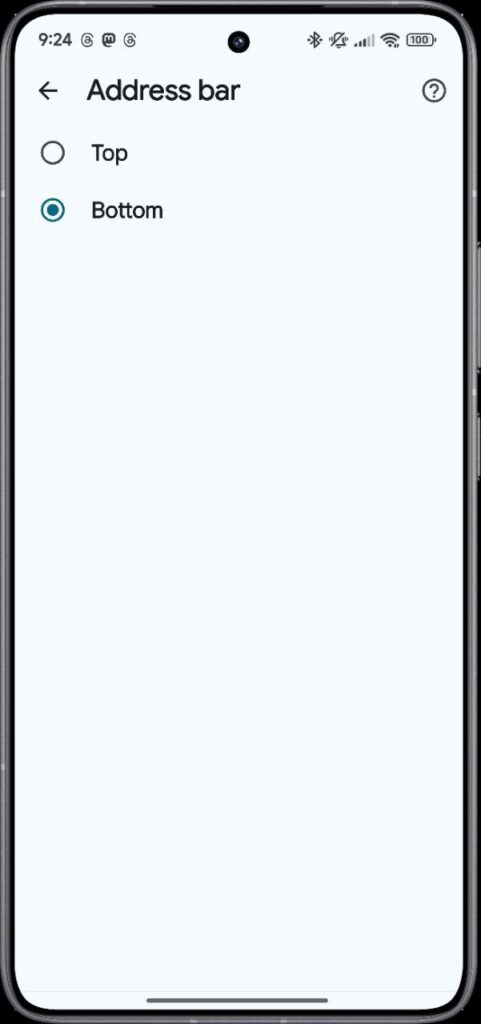It looks like Google has been listening to our gripes, folks! If you’re like me, juggling between Android and iPhone, you’ve probably noticed a glaring difference when using Chrome: the location of the address bar. On iPhone, I can happily switch that bad boy to the bottom, making it much easier to access with one hand on those increasingly massive screens. But Android? Nada. We were left staring at the top, green with envy… until now. Sort of.
Chrome Canary, Google’s experimental browser playground, has officially revived the bottom address bar on Android. If you’re willing to deal with some bugs (remember, this is Canary, not your everyday stable Chrome), you can try it out by installing the app from the Play Store. Just enable the flag by typing chrome://flags/#android-bottom-toolbar, restart your browser, and voilà! You’ll find the new option sitting under Settings > Address bar. Choose “Bottom,” and welcome to a whole new world of easier browsing.

This is the second time Google’s flirted with the idea. Back in October 2016, they launched a similar test called ‘Chrome Home’ but — surprise, surprise — it was abandoned, like so many of Google’s quirky little experiments. But now, after years of hibernation, it’s back, and I, for one, couldn’t be happier. It’s like they heard my sigh of frustration every time I switched from my iPhone back to my Android and wondered why I couldn’t have the same sweet bottom bar action.
However, as excited as we are for this little UI makeover, there’s another story brewing in the Chrome universe that’s got users up in arms — the future of extensions like uBlock Origin.
While Google is making some parts of Chrome more user-friendly, other changes have sparked a bit of a rebellion. The latest version of Chrome warns that extensions like uBlock Origin might be disabled soon due to Google’s ongoing push to deprecate Manifest V2, the older framework for building Chrome extensions.
If you’ve been relying on uBlock Origin to keep your web browsing free from those intrusive ads, brace yourself. A new warning in the Chrome Web Store hints that uBlock Origin may no longer be supported in the near future. The warning comes shortly after a similar change was spotted in Chrome Canary earlier this month as part of Google’s push to enhance user privacy and security, but it’s also forcing developers to shift to Manifest V3 — a platform that doesn’t exactly play nice with powerful ad blockers like uBlock.

The extension’s lead developer, Raymond Hill, has already created a Manifest V3 version called uBlock Origin Lite, but here’s the catch: it’s not as powerful as the original. For the advanced filtering many users depend on, the Lite version simply doesn’t cut it. Google is essentially nudging users toward these limited alternatives while developers scramble to adapt.
While Chrome is forging ahead with Manifest V3, some browsers like Firefox and Vivaldi are standing their ground, continuing to support Manifest V2 for the foreseeable future. So, if uBlock Origin is a must-have for your browsing experience, now might be the time to consider your options. Chrome may be making your life easier with that bottom address bar, but on the extension front, it’s a different story.
In the end, while we’re over here excitedly toggling our address bars, let’s keep an eye on the bigger picture. Chrome’s evolving, but it’s not all sunshine and rainbows — especially if you’re a fan of powerful ad blockers like uBlock Origin.
Featured image: Pawel Czerwinski / Unsplash
TechIssuesToday primarily focuses on publishing 'breaking' or 'exclusive' tech news. This means, we are usually the first news website on the whole Internet to highlight the topics we cover daily. So far, our stories have been picked up by many mainstream technology publications like The Verge, Macrumors, Forbes, etc. To know more, head here.


